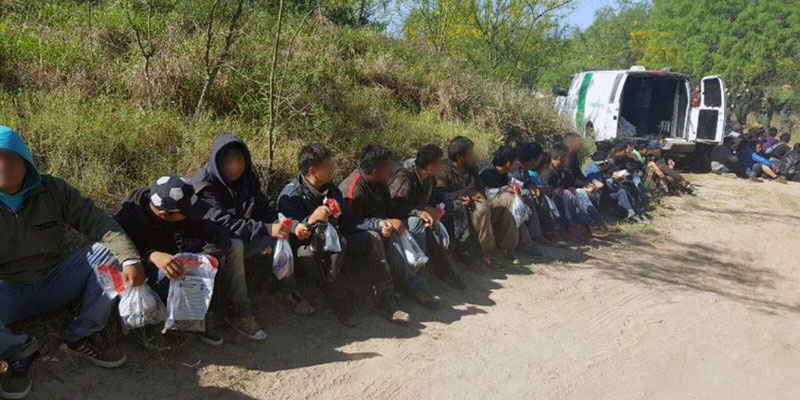U.S. Border Patrol agents are now refusing to turn over criminal illegal aliens with felony warrants to police in California due to uncertainty that local authorities will return the illegal aliens to federal custody.
Chief patrol agent in the patrol’s San Diego sector, Rodney Scott, said that California’s state sanctuary law was undermining cooperation between his agency and local law enforcement.
In a declaration issued March 6 in support of the Department of Justice’s lawsuit against California, Scott revealed multiple instances where a Border Patrol agent in the San Diego sector determined the ineffectiveness of turning a criminal alien over to local law enforcement because they would likely release them without notifying federal authorities.
“In each instance, the Border Patrol Agent determined it was not appropriate, consistent with his or her federal responsibilities to ensure the enforcement of immigration law, to release a criminal alien to the state and local law enforcement,” said Scott.
He continued saying, “This was because, although the alien was subject to removal, if released to California law enforcement, the alien would ultimately be released into the public.”
The declaration largely placed blame on the California Values Act, the sanctuary state law that began this year. The law that was largely supported by California Democrats, sometimes referred to as SB 54, restricts and limits communication from local law enforcement officers to federal immigration authorities. Perhaps the most troubling part of the law is that it prevents many federal immigration authorities from knowing when criminal aliens are released from local jails and such.
The SB 54 law, which is disobeying federal law and making an impact on communication efforts, was among the three laws challenged by the Department of Justice in its lawsuit against California. The DOJ argues that that the sanctuary laws warrant “significant intrusion into federal enforcement of the immigration laws.”
One example in the declaration described the El Cajon Police Department’s refusal to assist Border Patrol agents in pursuing three suspects who fled a vehicle after several requests from Border Patrol dispatch.
“After the event, it was determined that the officer declined the request to assist presuming it was an immigration matter, as opposed to a fleeing subject whose identity/immigration status was not known at the time of the incident … This declination for assistance occurred even though it involved a vehicle that failed to yield, endangering federal law enforcement and the public while traveling on a California Interstate and highway within their jurisdiction,” Scott wrote in the declaration.
Scott says this affects communication efforts and stymies the ability to observe human smuggling and other crimes.
Scott said, “If employers are not able to provide such consensual access, Border Patrol’s ability to detect and interdict real time illegal activity, ranging from criminal activity to the smuggling of narcotics to potential terrorists seeking to enter the United States, along the border will be diminished.”
Kyle Morris is a senior at the University of Alabama and a Yellowhammer News contributor. He also writes for The Daily Caller.
Follow Kyle on Twitter: @RealKyleMorris
Follow Kyle on Facebook: Kyle Morris












